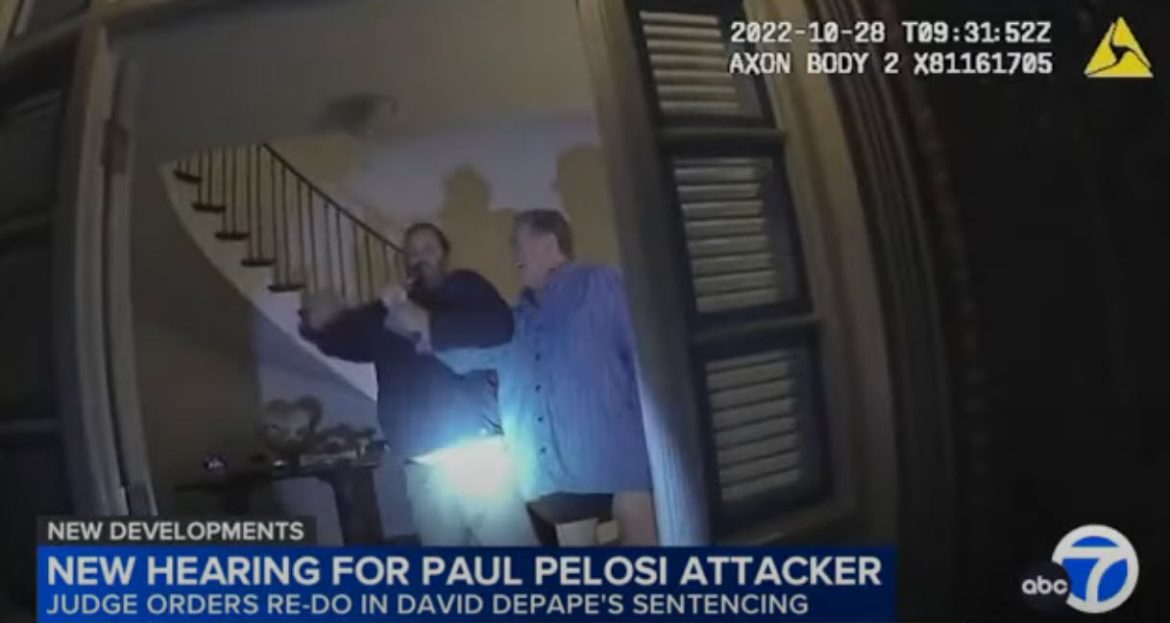David DePape, the man who attacked former House Speaker Nancy Pelosi’s husband with a hammer, is set to be re-sentenced after a court error was identified in his initial sentencing. DePape was originally sentenced to 30 years in prison last Friday for the brutal assault on 84-year-old Paul Pelosi, which occurred nearly two years ago. The re-sentencing is scheduled for May 28th.
The presiding judge acknowledged making a procedural error by not allowing DePape the opportunity to speak before the sentencing was handed down. This oversight necessitates a re-sentencing to ensure the legal process is correctly followed. DePape’s initial sentence came after a high-profile trial and conviction last year, with his attorneys originally requesting a 14-year sentence.
The violent incident took place at the Pelosi residence in the San Francisco Bay Area. DePape broke into the home and attacked Paul Pelosi with a hammer, an assault captured on police body camera footage. The shocking video shows the moments leading up to and following the attack, providing crucial evidence in DePape’s conviction.
Following the initial sentencing, FBI Agent Sergio Lopez addressed the media, emphasizing the broader implications of the attack. Lopez stated that the assault on Paul Pelosi was more than just a personal attack; it was an attack on American democracy itself. This sentiment echoes the heightened political tensions and the threats faced by public figures and their families.
David DePape’s case has drawn significant public and media attention, given the high-profile nature of the victims and the violent circumstances of the crime. The sentencing process aims to deliver justice while adhering to legal standards, hence the necessity for a re-sentencing. The upcoming court session on May 28th will provide DePape the chance to address the court before a final sentence is issued.
The re-sentencing of DePape underscores the importance of procedural accuracy in the judicial system. It also highlights the ongoing concerns about the safety of political figures and their families in an increasingly polarized environment. The case remains a stark reminder of the potential consequences of political violence and the need for robust protective measures.



